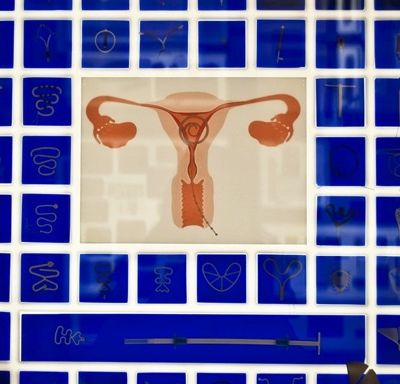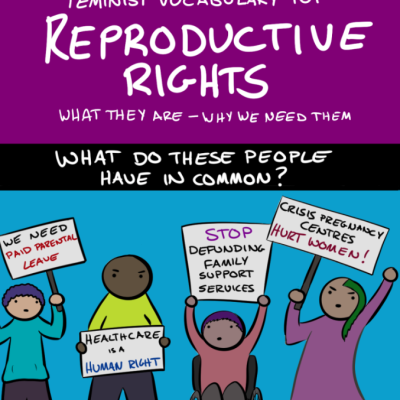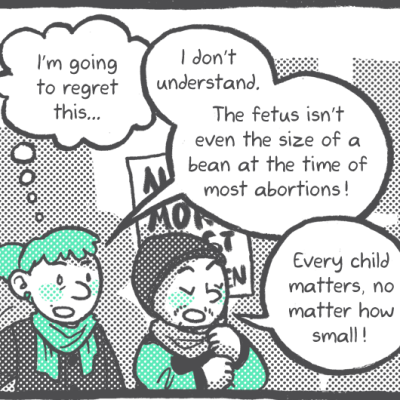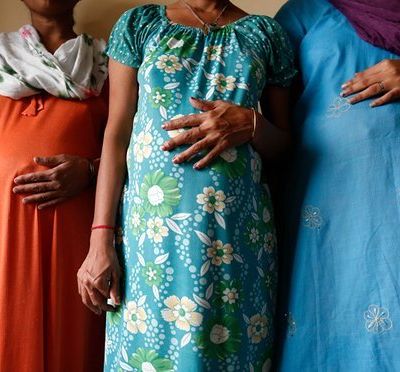Reproductive Rights
If I had a dollar every time I heard an opponent of abortion rights say something like “If you remove the option for abortions, women will stop getting them,” it’s safe to say I would go up a tax bracket or two. In many places today, Global South or North, I would need all of those dollars in order to travel a considerable distance for an abortion that may neither be legal nor safe.
‘Woman? It’s simple, say the fanciers of simple formulas: she is a womb, an ovary; she is a female –…
Though, in common rhetoric, it is often seen as the right to seek an abortion, it goes much beyond that to encompass a larger ambit of rights, and is applicable beyond simply a heteronormative framework of ‘reproduction’.
Pro-life arguments have invoked faith and religion to decry a person’s right to seek an abortion, and the right to decide what to do with one’s body. But, as Everyday Feminism’s comic, The Hypocrisy of Pro-Life Rhetoric, breaks it down for us, it is not with religion or faith where the problem lies.
Choices are also influenced by our milieu, by socio-cultural norms, by the laws and strictures that operate to regulate what we may and may not do. Lest this makes it seem that we are mere puppets triggered by internal whimsy and simultaneously constrained by external forces, our contributors show that this is not so.
So while theoretically we should all have the right to make our own decisions about matters to do with our sexuality, have the right to sexual and reproductive health care, the right to love who we want to, and the right to be free from violence and discrimination based on our sexual choices, to name just a few sexual rights, even today many people do not have these rights.
Getting to know who I really am has been a game changer. Prejudice, anger, control and violence all emerge from fear.
In this write up, we’d like to share a sense of what emerges from a compilation of these responses. This is based on the thoughts and feelings that come through for those of us here at In Plainspeak who have had the joy of reading the original responses as they came in to us. (Some of the quotations that follow have been slightly edited for flow and to help connect themes.) We know that most things in the realm of art, information and ideas lend themselves to a wide range of inferences and insights depending on the individuals making the inferences.
I’ve essentially thought of movement as a kind of freedom, but one that has the capacity to destabilise you in some way. My most creative moments are when I’m not moving, when I am in fact rooted and still.
I tell them to laugh freely but question as much too. This gives them a sense of sheer relief to be able to ask, talk, question, because, even if it is ‘really bad’, after all, it’s being said in ‘lightness, is it not?
Choices in the sexual area should remain personal while maintaining the dignity and the rights of all people who must be able to make fully informed choices in this area. It is the duty of the state to provide the education and information to its people in this area but not intrude into their personal choices.
The nurse looked me up and down and asked about my last period. I responded that it had been recent and regular and that I wasn’t there about a reproductive issue but rather a potential stomach bug. “Mmm hmmm,” she responded, with more than a hint of dubiousness in her voice, and said, “Take this cup, pee into it and bring it back to me. We’ll run a pregnancy test.” I stared back at her. “I’m not pregnant!” She responded, “Well, we’ll see about that. Is that your mum outside? Young girls like you are always coming in like this.”
The new proposal to ban commercial surrogacy is essentially a rehash of a bill that was proposed three years ago — the Surrogacy (Regulation) Bill, 2016 — which lapsed when Parliament adjourned without taking the measure for a vote. The Indian minister for health has called the 2019 bill a “need of the hour,” citing a rough estimate that between 2,000 and 3,000 unregulated clinics currently operate in the country.
While we moved one step forward towards sexual rights by striking down Article 377 of the Indian Penal Code (IPC) and decriminalising homosexuality, we still have a long way to go in changing and challenging the popular psyche and the political and legal narratives around homosexuality and queer families.
The Handmaid’s Tale leads one to re-examine these two forms of social hierarchy that women have to navigate: one where they apparently have equal sexual rights as men but have to bear most of the brunt of unwanted pregnancies, reproductive burdens and the like, and the other extreme where their decisions including those about sexual identity and procreation are institutionalised and they are robbed of all agency and autonomy.















